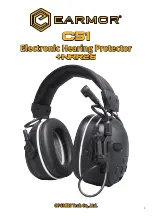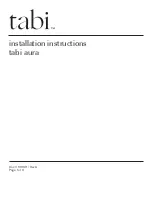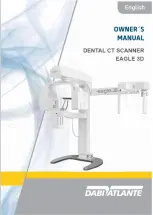
1.6 Information
1.6.1 Ecology
Information for the prevention of environmental pollution
Soil, air and water are essential for agriculture and all life on earth.
Protect them
. In areas where no local
regulations impose standards for the use and disposal of chemicals and petrochemical products required
by modern technology, all necessary precautions must be adopted to avoid any risk of pollution.
The following guidelines may be helpful:
• Find out about the legal requirements in your country and comply strictly with them.
• If no regulations are in force, ask your Dealer about the effects of lubricants, fuels, antifreeze mixtures,
cleaning agents etc. on people and the environment. Also ask how to store, use and dispose of such
products correctly. In most cases, agricultural advisers will be able to answer your questions
satisfactorily.
Important Notes
1.
When refueling the machine, take all necessary precautions to avoid fuel spillage. In particular, avoid
using pressurized containers or fuel supply systems, as these are unsuitable.
2.
As a rule, avoid any skin contact with liquid fuels, lubricants, acids, solvents etc. Most of these
products contain substances that are potentially harmful.
3.
Do not dispose of lubricants by burning: They contain substances that may be noxious when
burned
.
4.
Whenever possible, use biodegradable oil for lubricating the chains, as this oil cannot be collected.
5.
Avoid spillage while draining oil, brake fluid, coolant etc. from the engine, gearbox and hydraulic
system. Collect the fluids in suitable containers and dispose of them properly, according to regulations
in force and the availability of suitable systems.
6.
Modern coolants and mixtures, e.g. antifreeze and other additives, must be replaced every two years.
Never let them drain into the ground; collect and dispose of them safely.
7.
Never open or modify the air conditioning system. It contains gasses which must not be released in
the atmosphere. Contact your Dealer or a specialist who has the correct equipment for emptying and
recharging the system and for carrying out any required maintenance or repair.
8.
Immediately repair any leaks or defects in the engine cooling or hydraulic system to prevent any risk of
pollution.
9.
Never increase the pressure in a pressurized system. This may cause the components to burst.
10.
When welding, protect the hoses properly against welding spatters that could damage or weaken
hoses and sleeves, resulting in oil and coolant leaks.
1.6.2 Hydraulic systems: hoses
Hoses are an important part of modern machines.
Hose features may change over the years when exposed to pressure, vibrations, weather conditions, etc.
Inspect the hydraulic hoses at the beginning of each new harvesting season.
Regulations in force (e.g. DIN 20066) require hose replacement six years from manufacturing (the
manufacturing date is printed on most hoses, which helps determine when replacement is due).
It is important to observe these recommendations.
DANGER:
In the event of leaks, pressurized liquid may penetrate your skin and cause severe injury.
Immediately seek medical advice from a doctor familiar with this type of accident. This kind of
injury requires surgery.
[V]
GUID-EB5DC031-AE96-4C94-AABD-903DC8895CF1 [V1]
GUID-252EE5D1-FF1D-4B72-B47E-6F58749379D8 [V1]
1. General Information
Combines
29
M300-M310_EN_327305015
Содержание M300
Страница 2: ...Find manuals at https best manuals com ...
Страница 14: ...Table of contents Combines M300 M310_EN_327305015 ...
Страница 16: ...Table of contents 16 Combines M300 M310_EN_327305015 ...
Страница 34: ...2 13 Notes 89 2 13 1 Notes for road transport 89 Table of contents 34 Combines M300 M310_EN_327305015 ...
Страница 41: ...This as a preview PDF file from best manuals com Download full PDF manual at best manuals com ...













































